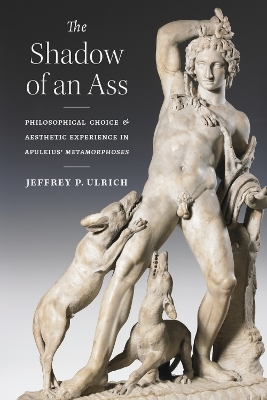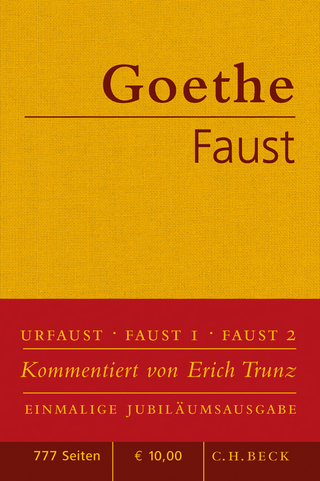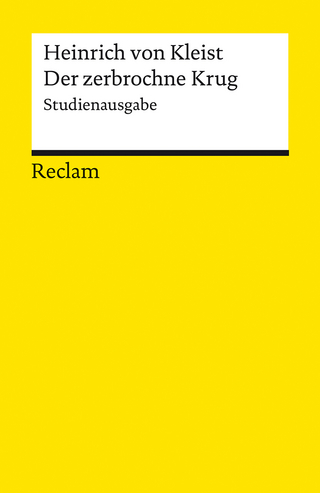
The Shadow of an Ass
Philosophical Choice and Aesthetic Experience in Apuleius' Metamorphoses
Seiten
2024
The University of Michigan Press (Verlag)
978-0-472-13356-7 (ISBN)
The University of Michigan Press (Verlag)
978-0-472-13356-7 (ISBN)
- Noch nicht erschienen (ca. November 2024)
- Versandkostenfrei innerhalb Deutschlands
- Auch auf Rechnung
- Verfügbarkeit in der Filiale vor Ort prüfen
- Artikel merken
An examination of philosophical choice and aesthetic reception in the reading of Apuleius’ novel Metamorphoses
Jeffrey Ulrich’s The Shadow of an Ass addresses fundamental questions about the reception and aesthetic experience of Apuleius’ Metamorphoses, popularly known as The Golden Ass, by situating the novel in a contemporaneous literary and philosophical discourse emerging in the Second Sophistic. This unique Latin novel follows a man who is accidentally turned into a donkey because of his curiosity, viewing the world through a donkey’s eyes until he is returned to human form by the Egyptian goddess Isis. In the end, he chooses to become a cult initiate and priest instead of a debased and overindulgent ass. On the one hand, the novel encourages readers to take pleasure in the narrator’s experiences, as he relishes food, sex, and forbidden forms of knowledge. Simultaneously, it challenges readers to reconsider their participation in the story by exposing its donkey-narrator as a failed model of heroism and philosophical investigation. Ulrich interprets the Metamorphoses as a locus of philosophical inquiry, positioning the act of reading as a choice of how much to invest in this tale of pleasurable transformation and unanticipated conversion. The Shadow of an Ass further explores how Apuleius, as a North African philosopher translating an originally Greek novel into a Latin idiolect, transforms himself into an intermediary of Platonic philosophy for his Carthaginian audience.
Situating the novel in a long history of philosophical and literary conversations, Ulrich suggests that the Metamorphoses anticipates much of the philosophical burlesque we tend to associate with early modern fiction, from Don Quixote to Lewis Carroll.
Jeffrey Ulrich’s The Shadow of an Ass addresses fundamental questions about the reception and aesthetic experience of Apuleius’ Metamorphoses, popularly known as The Golden Ass, by situating the novel in a contemporaneous literary and philosophical discourse emerging in the Second Sophistic. This unique Latin novel follows a man who is accidentally turned into a donkey because of his curiosity, viewing the world through a donkey’s eyes until he is returned to human form by the Egyptian goddess Isis. In the end, he chooses to become a cult initiate and priest instead of a debased and overindulgent ass. On the one hand, the novel encourages readers to take pleasure in the narrator’s experiences, as he relishes food, sex, and forbidden forms of knowledge. Simultaneously, it challenges readers to reconsider their participation in the story by exposing its donkey-narrator as a failed model of heroism and philosophical investigation. Ulrich interprets the Metamorphoses as a locus of philosophical inquiry, positioning the act of reading as a choice of how much to invest in this tale of pleasurable transformation and unanticipated conversion. The Shadow of an Ass further explores how Apuleius, as a North African philosopher translating an originally Greek novel into a Latin idiolect, transforms himself into an intermediary of Platonic philosophy for his Carthaginian audience.
Situating the novel in a long history of philosophical and literary conversations, Ulrich suggests that the Metamorphoses anticipates much of the philosophical burlesque we tend to associate with early modern fiction, from Don Quixote to Lewis Carroll.
Jeffrey P. Ulrich is Assistant Professor of Classics at Rutgers University.
| Erscheint lt. Verlag | 6.11.2024 |
|---|---|
| Zusatzinfo | 11 illustrations |
| Verlagsort | Ann Arbor |
| Sprache | englisch |
| Maße | 152 x 229 mm |
| Themenwelt | Literatur ► Anthologien |
| Literatur ► Klassiker / Moderne Klassiker | |
| Literatur ► Lyrik / Dramatik ► Dramatik / Theater | |
| Geisteswissenschaften ► Philosophie ► Philosophie Altertum / Antike | |
| Geisteswissenschaften ► Sprach- / Literaturwissenschaft ► Anglistik / Amerikanistik | |
| Geisteswissenschaften ► Sprach- / Literaturwissenschaft ► Literaturwissenschaft | |
| ISBN-10 | 0-472-13356-X / 047213356X |
| ISBN-13 | 978-0-472-13356-7 / 9780472133567 |
| Zustand | Neuware |
| Haben Sie eine Frage zum Produkt? |
Mehr entdecken
aus dem Bereich
aus dem Bereich
Der Tragödie erster und zweiter Teil. Urfaust
Buch | Hardcover (2021)
C.H.Beck (Verlag)
10,00 €
Kleist, Heinrich von – Deutsch-Lektüre, Deutsche Klassiker der …
Buch | Softcover (2024)
Reclam, Philipp (Verlag)
7,40 €


